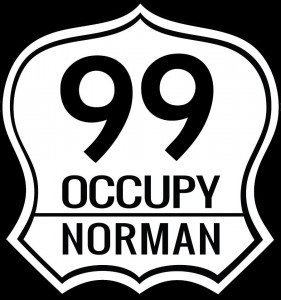Grassroots Mutual Aid in Oklahoma
Here’s an announcement / call to action from InterOccupy.net.[1] They are helping to coordinate information about shelters, drop-offs, donations, food banks, communications & connectivity for folks affected by the Oklahoma tornados. From the post:
The absolutely devastating impact of the Tornados in Oklahoma has prompted a concentrated relief effort for those who have suffered in this region. There is no limit to who you can help or what you can do... but please do something. Many #AmeriSec members and other humanitarian groups will be on scene to help in anyway we can. This is an operation that all can assist with and if money, transportation or any issues that would hinder you from being able to help please, use social media, video and any other means to KEEP the word moving. As we have seen with #OccupySandy the impact of individuals helping with natural disaster has a tremendous impact... So Please assist in any way you can. WE ARE LEGION and WE have the ability to assist in the suffering on the ground so please help!
Please make video and pastebins with information that could assist independent relief workers and all others
–andrea @ InterOccupy.net (May 21, 2013). #OpOK Update: Oklahoma Relief
See the whole thing here, including lists of relief information and contact points.
There’s also a Community Action meeting gathering to-day (Tuesday, May 21) in Norman, Okla. From scott crow:
Today Tues May 21at 12 noon
Will be a meeting of decentralized coordination efforts: CSBI Building 1155 E Main Norman, OK 73071
Including: COBRA,[2] Food Not Bombs ,Occupy, C4ss, IWW and Rainbow folks
Hopefully a place will be set up to send donations, for people to contact them and for volunteers to gather.
Edit (12pm). And here’s some more from Zakk Flash:
Tornadoes touched down last night in Moore, Oklahoma, killing at least 51 people (20 children among them). We can't control the weather, but we can try to stop climate change before it gets worse, and we can definitely help build solidarity networks to respond to emergency situations.
Central Oklahoma Black/Red Alliance (COBRA) will be hosting a gathering of folks who are interested in the People’s response to the disaster. Folks are invited to come by my offices at Community Action (1155 E Main, Norman OK 73071) at noon today to discuss the current response from the Red Cross, organized labor, faith-based communities, and the like.
We’ll also be discussing decentralized relief and creative opportunities to help folks most affected by the storm. Not everyone is connected or comfortable working with NGOs and there are independent efforts that can make a huge difference. Look at Occupy Sandy as an example.
In the meantime, if you have any type of medical background/credentials and want to help relief efforts, get to the Warren Theater. If you don't have medical credentials but want to help, get to the Home Depot in Moore.
If you want to help people in the area affected by the tornados, strongly consider offering support wherever possible, and wherever they ask for it, from decentralized, grassroots mutual aid groups like these. (They need your help a lot more than well-funded, bureaucratically organized efforts like Red Cross or Salvation Army.) Ordinary people working together in solidarity can accomplish remarkable, life-saving things.
